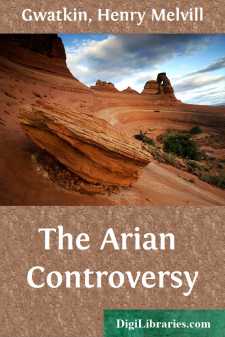Categories
- Antiques & Collectibles 13
- Architecture 36
- Art 48
- Bibles 22
- Biography & Autobiography 813
- Body, Mind & Spirit 142
- Business & Economics 28
- Children's Books 14
- Children's Fiction 11
- Computers 4
- Cooking 94
- Crafts & Hobbies 4
- Drama 346
- Education 46
- Family & Relationships 57
- Fiction 11829
- Games 19
- Gardening 17
- Health & Fitness 34
- History 1377
- House & Home 1
- Humor 147
- Juvenile Fiction 1873
- Juvenile Nonfiction 202
- Language Arts & Disciplines 88
- Law 16
- Literary Collections 686
- Literary Criticism 179
- Mathematics 13
- Medical 41
- Music 40
- Nature 179
- Non-Classifiable 1768
- Performing Arts 7
- Periodicals 1453
- Philosophy 64
- Photography 2
- Poetry 896
- Political Science 203
- Psychology 42
- Reference 154
- Religion 513
- Science 126
- Self-Help 84
- Social Science 81
- Sports & Recreation 34
- Study Aids 3
- Technology & Engineering 59
- Transportation 23
- Travel 463
- True Crime 29
The Arian Controversy
Categories:
Description:
Excerpt
CHAPTER I.
THE BEGINNINGS OF ARIANISM.
Arianism is extinct only in the sense that it has long ceased to furnish party names. It sprang from permanent tendencies of human nature, and raised questions whose interest can never perish. As long as the Agnostic and the Evolutionist are with us, the old battlefields of Athanasius will not be left to silence. Moreover, no writer more directly joins the new world of Teutonic Christianity with the old of Greek and Roman heathenism. Arianism began its career partly as a theory of Christianity, partly as an Eastern reaction of philosophy against a gospel of the Son of God. Through sixty years of ups and downs and stormy controversy it fought, and not without success, for the dominion of the world. When it was at last rejected by the Empire, it fell back upon its converts among the Northern nations, and renewed the contest as a Western reaction of Teutonic pride against a Roman gospel. The struggle went on for full three hundred years in all, and on a scale of vastness never seen again in history. Even the Reformation was limited to the West, whereas Arianism ranged at one time or another through the whole of Christendom. Nor was the battle merely for the wording of antiquated creeds or for the outworks of the faith, but for the very life of revelation. If the Reformation decided the supremacy of revelation over church authority, it was the contest with Arianism which cleared the way, by settling for ages the deeper and still more momentous question, which is once more coming to the surface as the gravest doubt of our time, whether a revelation is possible at all.
The doctrine of the Lord's person.Unlike the founders of religions, Jesus of Nazareth made his own person the centre of his message. Through every act and utterance recorded of him there runs a clear undoubting self-assertion, utterly unknown to Moses or Mahomet. He never spoke but with authority. His first disciples told how he began his ministry by altering the word which was said to them of old time, and ended it by calmly claiming to be the future Judge of all men. And they told the story of their own life also; how they had seen his glory while he dwelt among them, and how their risen Lord had sent them forth to be his witnesses to all the nations. Whatever might be doubtful, their personal knowledge of the Lord was sure and certain, and of necessity became the base and starting-point of their teaching. In Christ all things were new. From him they learned the meaning of their ancient scriptures; through him they knew their heavenly Father; in him they saw their Saviour from this present world, and to him they looked for the crown of life in that to come. His word was law, his love was life, and in his name the world was overcome already. What mattered it to analyse the power of life they felt within them? It was enough to live and to rejoice; and their works are one long hymn of triumphant hope and overflowing thankfulness.
In contact (1) with the vulgar.It was easier for the first disciples to declare what their own eyes had seen and their own hands had handled of the Word of Life, than for another generation to take up a record which to themselves was only history, and to pass from the traditional assertion of the Lord's divinity to its deliberate enunciation in clear consciousness of the difficulties which gathered round it when the gospel came under the keen scrutiny of thoughtful heathens. Whatever vice might be in heathenism, there was no want of interest in religion. If the doubts of some were real, the scoffs of many were only surface-deep. If the old legends of Olympus were outworn, philosophy was still a living faith, and every sort of superstition flourished luxuriantly. Old worships were revived, the ends of the earth were searched for new ones. Isis or Mithras might help where Jupiter was powerless, and uncouth lustrations of the blood of bulls and goats might peradventure cast a spell upon eternity. The age was too sad to be an irreligious one....


